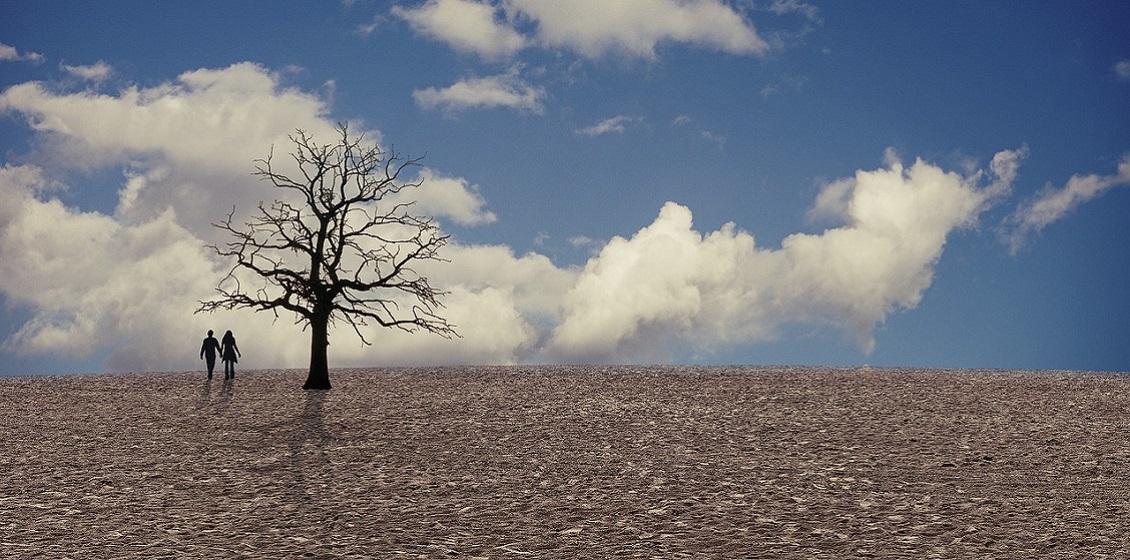The first prize in the DDRN Essay Competition for University Students 2019. was awarded to Siri Franceschi, Journalism and International Studies, Roskilde University. The Assessment Committee wrote: “A key issue well presented…a candid discussion about how journalists relate to climate change…The essay draws on own research…It will surely cause a debate.”
“We want to ensure that we are being scientifically precise, while also communicating clearly with readers on this very important issue,” said the editor-in-chief, Katharine Viner, when The Guardian earlier this year changed the language they use about the environment. Instead of “climate change” they now say: “climate emergency, crisis or breakdown”. The Guardian is not the only media that actively has changed working methods when reporting on climate change. The BBC has issued formal guidance to its journalists on how to report climate change due to a tendency towards a false balance on the topic. In Denmark, the media house Politiken has changed their editorial practice which means that journalists can no longer fly domestically, photographers should drive electric cars and the travel section should focus more on destinations that are reachable by land. The online media Zetland wants to become carbon-neutral and editor-in-chief, Lea Korsgaard, has said: “Journalism should not only cover climate change it should fight it too”.

The climate crisis is no longer an issue for discussion. When the last IPCC Special Report was published this year, the message was clear: We only have 11 years to reverse course if we do not want the temperature to rise more than 1.5 ºC above pre-industrial levels. An increase of temperature means irreversible climate change which will have fatal consequences for humanity, biodiversity and the ecosystems of the planet. We are standing in front of a crisis that demands immediate action. Does this state of crisis mean that journalists and media need to rethink how they address and report on climate change? Should journalism help fight the climate crisis?
This essay regards how Danish climate reporters address the ideals and criteria of journalism in their coverage of climate change. Based on qualitative interviews with seven Danish climate reporters, who separately represent some of the biggest national news media in Denmark, it examines whether traditional ideals, criteria and practices of journalism are to be redefined in response to the proportions of climate change.
The objectivity norm in transition?
The objectivity norm has long been at the centre of journalistic practice. The concept has been widely discussed in academic circles and there are many different interpretations of how objectivity should be understood and put into practice. Journalism has been criticised for relying too much on the objectivity norm when reporting on climate change. The objectivity norm forces a balanced approach and therefore ‘climate deniers’ have for a long time been prioritised at the same level as climate scientists and fighters, even though research concludes that climate change is a reality.
Climate change has for a long time been a politicised topic and several of the interviewed climate reporters address that they have aimed at a balanced and ‘objective’ approach when reporting on climate-related topics. They also stress to be more careful and accurate when writing about climate change. The reporters claim to be ‘traditionalist’ when it comes to their journalistic practice. They have always seen balance and objectivity as the ideal, but several of them point out that this has changed – especially regarding topics around the climate crisis. It seems as if reporting about climate change demands some sort of rethinking within journalism. As an example, several of the reporters address how they have to reconsider the time aspect within stories about the climate crisis since climate journalism cannot act on the same premises as other news stories: “You have to take the breaking element out of it,” says one of the reporters as an example.
In general, we have found that there exists a precautionary principle in the reporter’s work. Due to the sensibility about the subject, they tend to be more transparent and more focused on fact-checking in their work on climate change. The varied statements given by the reporters give an occasion to discuss whether climate change is a unique case in comparison to other subjects. It seems that the reporters address the subject differently than other areas by considering special communicative means when covering climate change.
Journalism as activism: Should journalists advocate for climate action?
In continuation of the discussion about the objectivity norm within journalism, the climate reporters were asked how they understand activist means as an effective tool in covering climate change. Given the change within climate- and environmental journalism, where the focus has gone from a ‘balanced’ reporting towards a more scientifically precise coverage, the reporters were to discuss whether they find activist means conflict with journalistic reliability and professionalism.
There has been a change towards more active journalism in the later years which means that there has been an increase in journalists who get inspiration from activists in their information process. This tendency has led the media researcher Adrienne Russell to define a new journalistic role: The media vanguard – which is an overlapping identity that contains elements from both journalism and activism. There are several examples of so-called media vanguards who believe the truth is to be found in the field and within direct interaction with the public. These journalists reject neutral and objective journalism and aim at a communicative practice where citizens are a natural part of the information process. Despite the rise towards more active journalism, it is far from everyone who believes journalism and activism should be interconnected. Within media theory, there is still a dominant position that finds it problematic if journalism moves away from the ‘objective’ ideal.
Among the interviewed climate reporters, we see a high scepticism when it comes to the idea of the journalist as an activist. As mentioned, the majority of the climate reporters identify as traditional journalists, where the main goal is to keep a neutral tone and aim for objectivity. As one of the reporters say: “I think activism is inconsistent with the ideal of journalism. I would find activist methods to go against my reliability”. This firm conviction indicates that the climate reporters still rely on a very strong idea about what it is to be a journalist and that this conviction still include ideals as objectivity and neutrality.
Media meets climate: Who is responsible?
Media researcher Risto Kunelius believes journalism has to transform to meet the demand for a responsible climate reporting. He stresses that the working methods used by journalists need to be redefined if journalists want to tell stories about the climate crisis that do not lead to stagnation. According to Kunelius, journalists have to reconsider their working methods to make their climate coverage more varied, activating and mobilising. Besides that, they always need to have a ‘weight-of-evidence’-approach in contrast to the ‘balanced’-approach that has led to a misleading framing of the climate crisis.
Founder of the Central European Environmental Journalism Programme, Bud Ward, believes that climate change has a distinctive character when it comes to journalistic communication. He finds journalists to have a significant ethical responsibility which means that they have to report about climate change in a way that makes people act. The media has to take a more active stand in a way where their involvement can constantly be legitimised through reliable and well-researched arguments. Ward claims that journalism has already lost some of its reliability due to the disproportioned climate coverage and therefore journalists should not fear a more ‘subjective’ and direct approach when making journalism about the climate crisis.
Even though the interviewed climate reporters consider the climate crisis to be a topic where they have to rethink some of their journalistic working methods, they do not believe it legitimises activist strategies. Only one of the climate reporters identifies himself as an activist: “I believe journalism should always aim at making people independent, thoughtful and active individuals, and therefore I believe we can legitimise journalists as activists”. Even though the climate reporter cannot be defined as a media vanguard, this statement is the one that comes nearest to an activist approach. The majority of the interviewed climate reporters refuse the idea of activism in relation to journalism.
Climate crisis: Time to rethink journalistic ideals?
Based on the analysis made upon the interviews with the climate reporters, this essay concludes that the climate reporters largely position themselves in a traditional journalistic role. They defend themselves against any association with activism, because they fear that activist means decreasing their reliability as reporters. However, the majority of the reporters do see climate change as a unique case in the media landscape and that climate change, therefore, needs to be covered with well-considered and innovative approaches.


